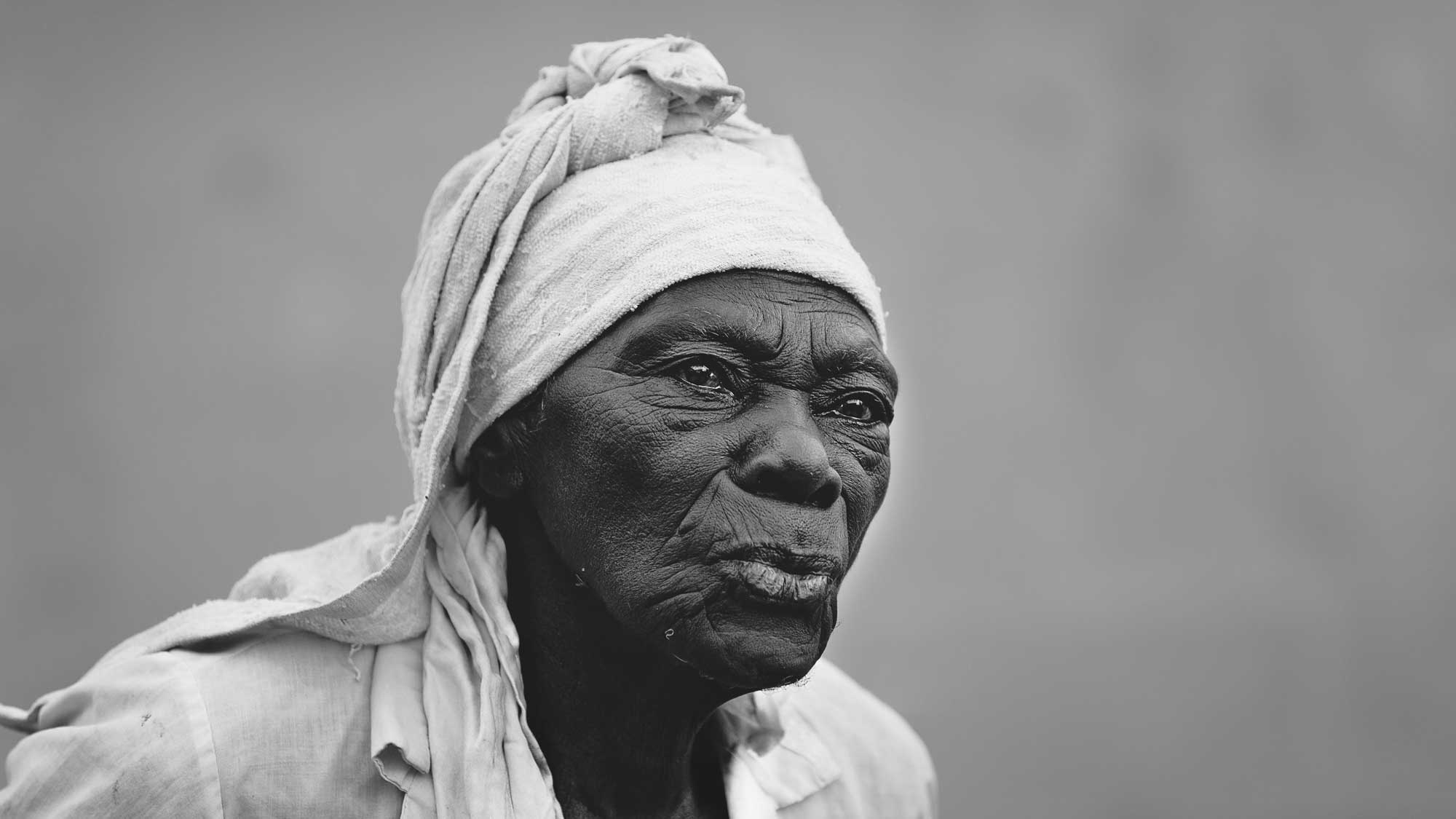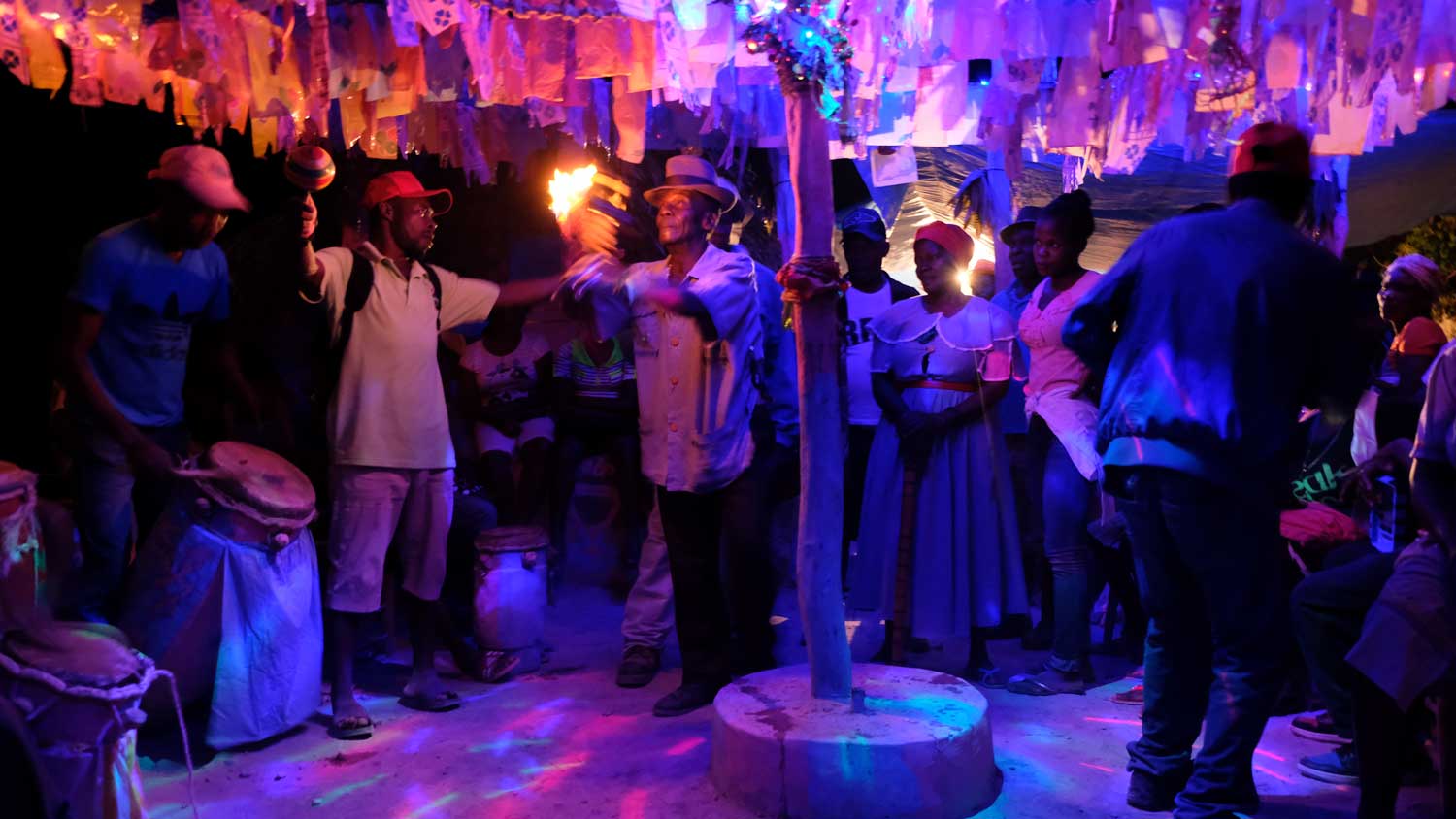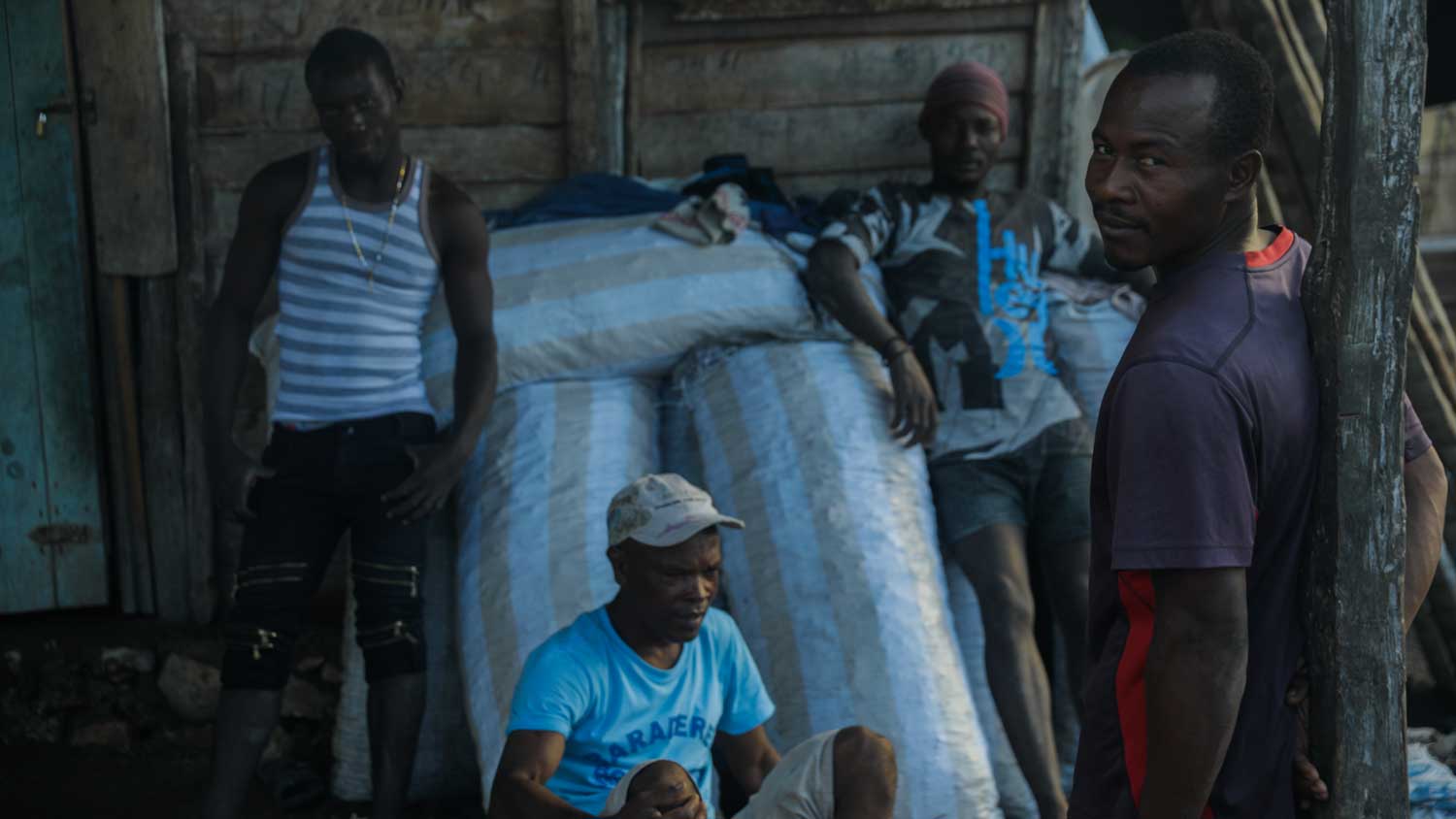
Fiercely independent: Haiti has attitude
Haiti dances to its own rhythm. What’s behind the nation’s unique personality and place in history?
18th century Haiti, or Hispaniola as it was named then. It’s a colony of France, and it’s the most prosperous and fruitful colony in the entire Caribbean, supplying France and Europe with coffee, sugar and many other goods – harvested and produced with slave labor.
For slaves, days have no end; they begin and end each day’s labor in the torture of knowing they are and forever will be slaves. Across the island, things are getting tense. Revolution is brewing.
From centuries of slavery has come a kind of fire – slow-burning, but extremely intense – and it lives in the stomach of every single slave on the island; man, woman and child. Risking life and limb, oppressed Haitians hold hushed meetings, organise illicit nighttime reunions, and some escape to the mountains.

Photo: Franck Fontain
Vodou visions of freedom
On the night of August 14, 1791, at Bois Caïman, one event pulls on the last thread holding colonial rule together. A Vodou ceremony gives birth to a concrete plan that will irrevocably change life on the island. In a spirit of revolution, of community, and of kinship, the slaves who reunited that night catalyzed an insurrection that spanned several days. The Northern Plain was set ablaze, and freed slaves retaliated against their former slave owners.
This was the seed of the Haitian revolution that culminated in 1804, with slave rebels taking their freedom once and for all.
Haiti is the only place in the Caribbean where an enslaved class successfully fought off and ousted their oppressors. This victory would not have been possible without the determination, community, and the will to try and fail and try again. And the spirit that enabled Haitians to fight for their birthright of freedom is still alive today.
If everything you know about Haiti so far has come from news reports, you’re missing so much of the picture. While the 2010 earthquake was truly disastrous, and Haiti’s young democracy still has its troubles, the average Haitian’s reality is very different.

Photo: Mikkel Ulriksen
“Here, the early bird gets the coffee”
Take a stroll anywhere in Port-au-Prince, or even in Jacmel, or Cap-Haïtien. Haitians rise with the sun – because they know that every day is a new chance to do better than they did the day before. Here, the early bird gets the worm, the coffee, and the morning laughs around the merchant serving up bananas and boiled eggs.
You’ll see Haitians eating breakfast on their front porch, in front of their office, or on the tap tap – there is no rest for the driven.
Under the harsh morning sun, bare-chested young men pull giant makeshift wooden wheelbarrows loaded with bags of charcoal. The muscles in their arms and chest strain as they push tirelessly – there’s only one way to stop, and that’s to get to where they’re going.
Midday. It’s time for lunch for most – or for the second shift, job, or side-hustle. The fire that lit up the revolution of 1804 is still alive, pushing people to survive and thrive. There are better days ahead, but we have to live to see them.
“A testament to the power of overcoming the unknown”
For Haitians, this isn’t just a daily mantra, it’s a year-round mindset that feeds into the ebbs and flows of island life. Perhaps the best illustration of this is the annual carnival season.
For many Haitians, the turn of the year is associated with financial difficulties and cloudy horizons. “We know what we have, but not what’s out there.” Carnival, which spans the months of February and March, is a testament to the power of overcoming the unknown.
Passion comes through everything Haitians do. It’s in the young men selling water in the streets. It’s in the late night laughter of people sitting at a bar by the side of the street. It’s in the mornings, noons, and nights of hustlers, of move-makers, of mothers leading households on their own, of families in the provinces, and of spirits young and old.
Haiti speaks purpose; do you?
Written by Kelly Paulemon.
Published December 2018
Explore Haiti’s Art & Culture

Paradise for your inbox
Your monthly ticket to Haiti awaits! Get first-hand travel tips, the latest news, and inspiring stories delivered straight to your inbox—no spam, just paradise.



